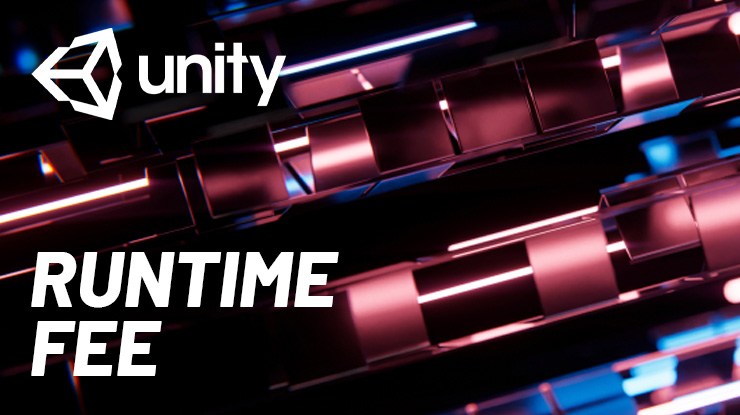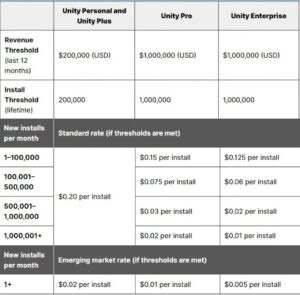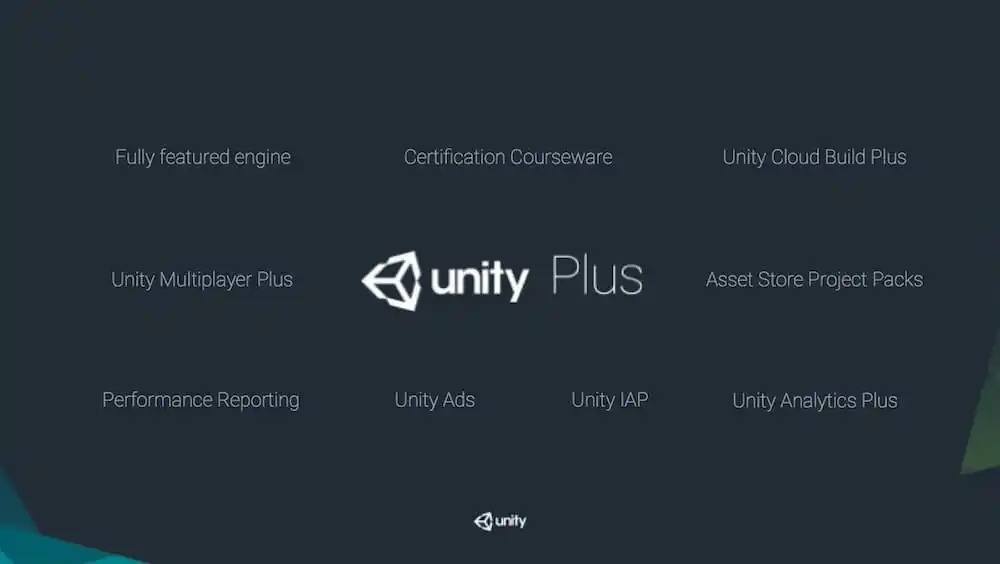Unity To Begin Charging Runtime Fee Starting January 1, 2024

Unity, the well-known game development platform, has unveiled its plans to implement a revised fee structure for developers, commencing on January 1, 2024. This fresh fee model, named the Unity Runtime Fee, will be linked to the number of installations of games created using the Unity engine. The specific charges will fluctuate according to the developer’s chosen subscription plan.

For Unity Personal and Unity Plus subscribers, a fee of $0.20 per installation will be incurred after surpassing 100,000 installations. Meanwhile, Unity Pro subscribers will be subject to a fee based on a percentage of their game’s revenue, capped at $250,000 annually. This altered fee arrangement has elicited a mixed response within the game development community. Some developers have expressed apprehension, fearing that these new fees may present challenges for independent developers. In contrast, others have emphasized that the fees remain comparatively modest and that Unity provides valuable services to developers.
In addition to the fee adjustments, Unity has also announced the integration of cloud-based asset management into its offerings. This enhancement will enable developers to conveniently store and manage their assets in the cloud, facilitating collaboration among team members and providing access to assets from any location. The incorporation of this feature into Unity subscription plans is scheduled for November 2023.
Unity has acknowledged the concerns raised within the game development community regarding the fee structure and has committed to making revisions in response to the feedback received. The company has expressed regret over any confusion and distress resulting from the initial announcement and has stressed its dedication to listening to input from its team members, community, customers, and partners.

It is important to note that this is not the first time Unity has faced criticism related to its pricing structure. In 2013, the company encountered a class-action lawsuit stemming from alterations to its licensing terms, which some developers perceived as a breach of contract. However, the extent of controversy surrounding the new fee structure remains uncertain.
In summary, Unity’s forthcoming fee structure, which hinges on the number of installations using the Unity engine, will be effective as of January 1, 2024. The actual fees will be contingent on the developer’s selected subscription plan, although they are notably competitive within the industry. While the new fee structure has sparked some debate, Unity has pledged to refine its policy and has expressed regret over any confusion caused by the initial announcement. The introduction of cloud-based asset management represents a valuable tool for developers, streamlining collaboration and asset accessibility.














